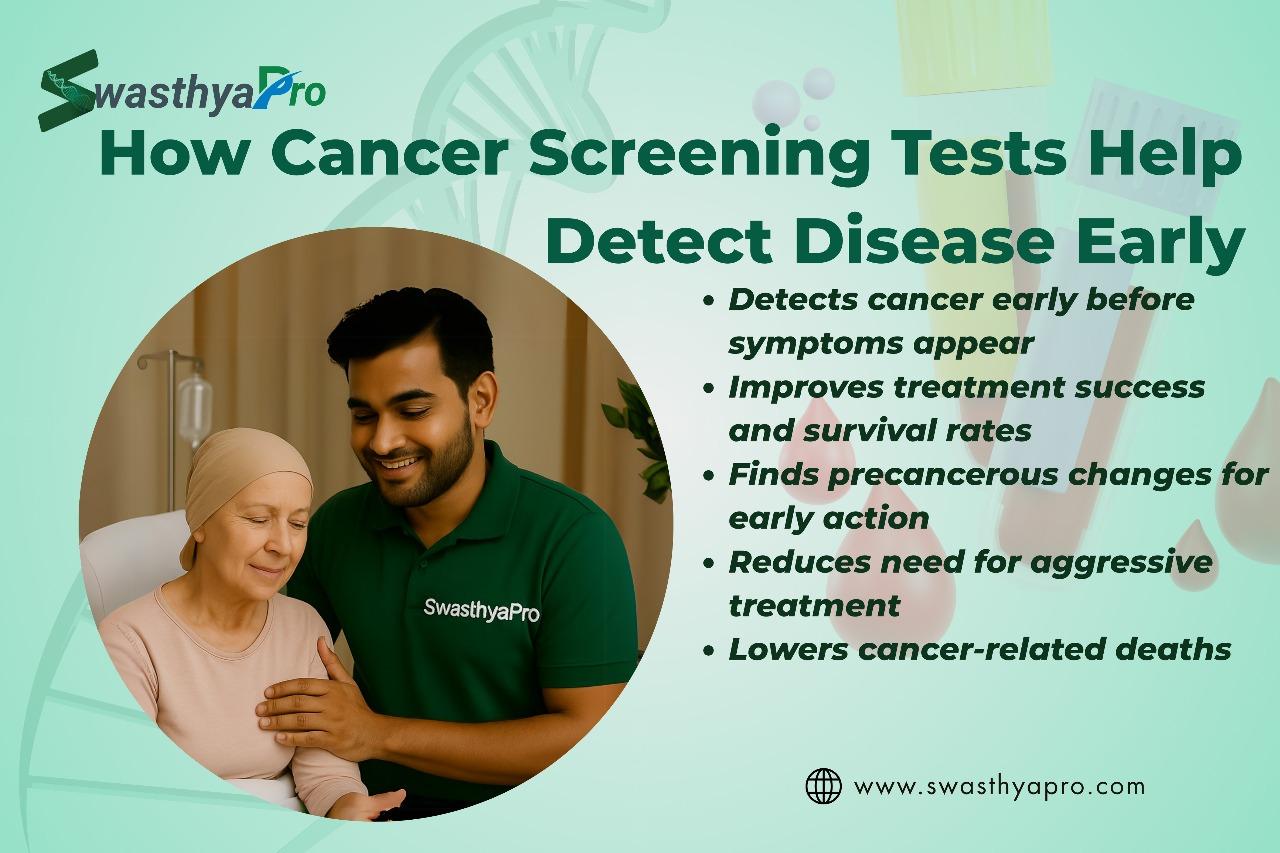How Cancer Screening Tests Can Save Your Life

Cancer remains one of the most formidable health challenges worldwide, but cancer screening tests are powerful tools that can significantly reduce its impact by detecting the disease early. A cancer screening test is a medical procedure designed to identify cancer or precancerous conditions in individuals who show no symptoms, allowing for timely intervention that can be life-saving. By catching cancer at its earliest stages, these tests improve treatment outcomes, reduce mortality rates, and enhance quality of life. This article explores how cancer screening tests work and why they are critical for saving lives.
The Power of Early Detection
The most significant advantage of a cancer screening test is its ability to detect cancer before it spreads, when treatment is most effective. Early-stage cancers are often smaller, localized, and responsive to less invasive treatments, such as surgery or targeted therapies. For instance, a mammography cancer screening test can identify breast cancer before a lump is palpable, often leading to a 90% or higher five-year survival rate. Similarly, a colonoscopy, a cancer screening test for colorectal cancer, can detect and remove precancerous polyps, preventing the disease altogether. By enabling early intervention, cancer screening tests drastically reduce the risk of advanced-stage diagnoses, which are harder to treat and often fatal.
Types of Cancer Screening Tests
Several cancer screening tests target specific cancers, each using unique methods to detect abnormalities. A Pap smear, a cancer screening test for cervical cancer, collects cells from the cervix to identify changes caused by high-risk human papillomavirus (HPV) strains. This cancer screening test has reduced cervical cancer mortality by over 50% in many countries by catching abnormalities early. For lung cancer, a low-dose CT scan serves as a cancer screening test for high-risk individuals, such as smokers, detecting small lung nodules that indicate early-stage cancer. The prostate-specific antigen (PSA) test, a blood-based cancer screening test for prostate cancer, measures PSA levels to identify potential issues before symptoms arise.
Emerging technologies, like liquid biopsies, are expanding the scope of cancer screening tests. This non-invasive cancer screening test analyzes blood samples for circulating tumor DNA, detecting cancers like pancreatic or ovarian, which are often diagnosed late. In 2025, advancements in these cancer screening tests are making them more sensitive, allowing for earlier and more accurate detection across multiple cancer types.
Who Benefits from Cancer Screening Tests?
Cancer screening tests are recommended based on age, gender, family history, and lifestyle factors. For example, women should begin mammography as a cancer screening test at age 40, with annual or biennial screenings depending on risk. Colonoscopy, a cancer screening test for colorectal cancer, is advised starting at age 45 for those at average risk, with earlier screenings for those with a family history. Women aged 21 and older should undergo a Pap smear cancer screening test every three to five years, while high-risk individuals, such as smokers aged 50–80, benefit from annual low-dose CT scans as a cancer screening test for lung cancer. Men should discuss the PSA cancer screening test with their doctors starting at age 50, or earlier if at higher risk.
Consulting a healthcare provider ensures that cancer screening tests are tailored to individual needs. Genetic predispositions, such as BRCA mutations, may warrant more frequent or earlier screenings, making personalized cancer screening tests critical for high-risk groups.
How Cancer Screening Tests Save Lives
Cancer screening tests save lives by enabling early intervention, which often leads to less aggressive treatments and better outcomes. For example, colorectal cancer detected through a colonoscopy cancer screening test has a five-year survival rate of over 90% when caught early, compared to under 20% for late-stage diagnoses. Similarly, lung cancer identified via a low-dose CT cancer screening test can be treated with surgery rather than extensive chemotherapy, improving survival chances. By preventing cancer from progressing, these tests reduce the physical, emotional, and financial toll of advanced disease.
Innovations in 2025 are enhancing the life-saving potential of cancer screening tests. Artificial intelligence (AI) is improving the accuracy of imaging-based tests, reducing false positives and ensuring earlier detection. At-home cancer screening tests, like fecal immunochemical tests (FIT) for colorectal cancer, make screening more accessible, encouraging more people to participate and catch cancer early.
Challenges and Solutions
While cancer screening tests are highly effective, they are not without challenges. False positives can lead to unnecessary procedures, while false negatives may delay diagnosis. Advances in technology are addressing these issues by improving the precision of cancer screening tests. Cost is another concern, but initiatives like subsidized screenings and expanded insurance coverage are making tests more affordable. Public awareness campaigns are also critical, educating people about the importance of cancer screening tests and dispelling myths about discomfort or risks.
Conclusion
Cancer screening tests are life-saving tools that detect cancer early, when it’s most treatable. From mammography to liquid biopsies, these tests offer hope by preventing advanced-stage diagnoses and improving survival rates. By understanding who needs cancer screening tests and prioritizing them based on personalized risk factors, individuals can take proactive steps to protect their health. With ongoing advancements and increased accessibility, cancer screening tests will continue to save countless lives, making them an indispensable part of modern healthcare.
- Art
- Causes
- Best Offers
- Crafts
- Dance
- Drinks
- Film
- Fitness
- Food
- Spiele
- Festival
- Gardening
- Health
- Startseite
- Literature
- Music
- Networking
- Andere
- Party
- Religion
- Shopping
- Sports
- Theater
- Wellness



